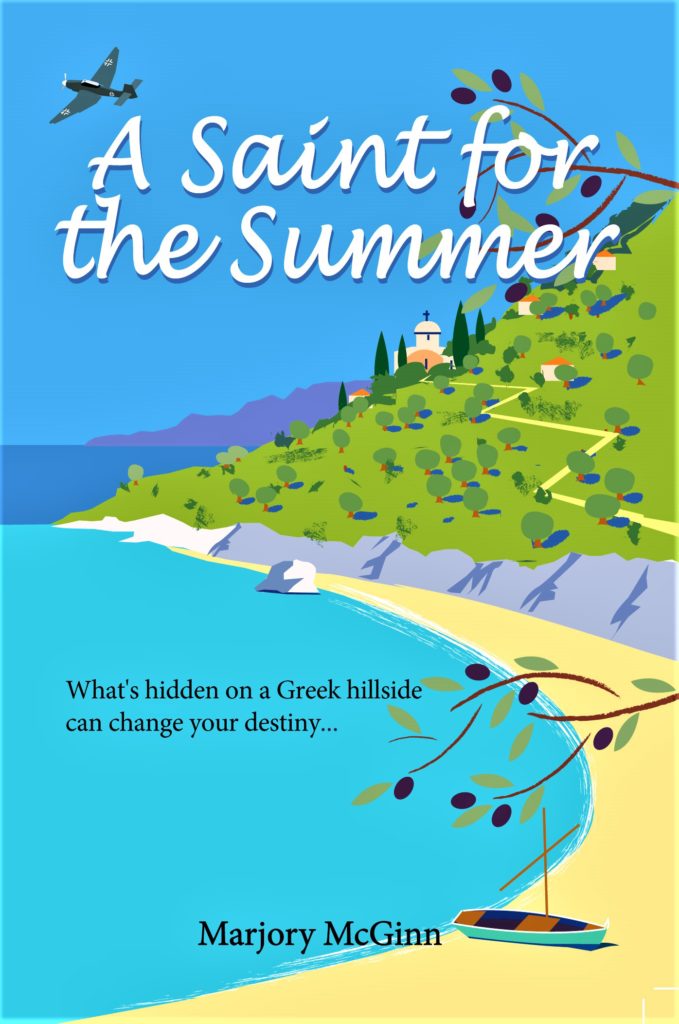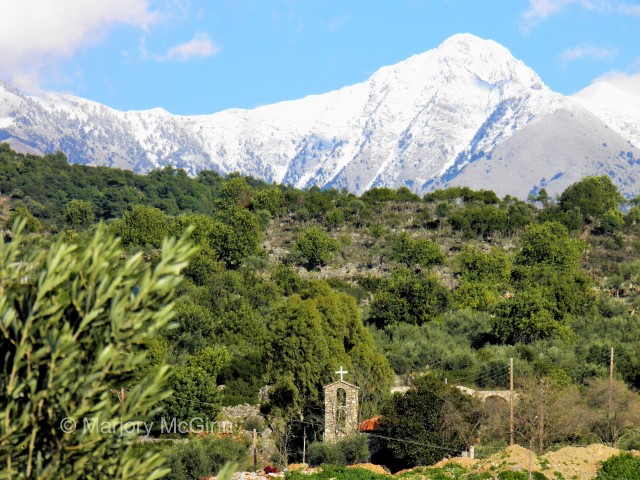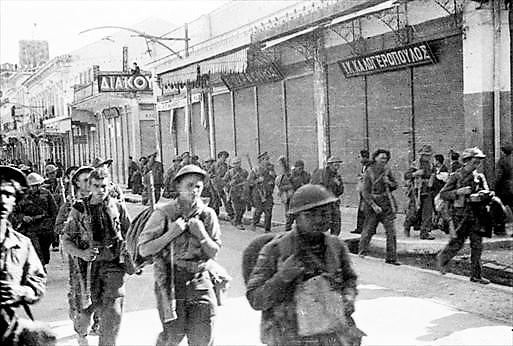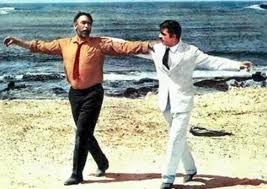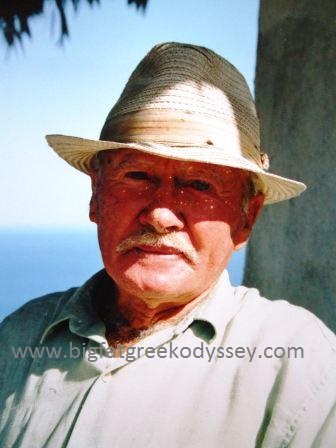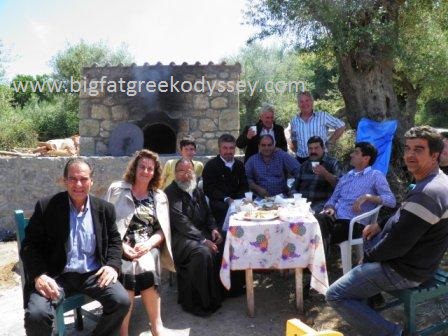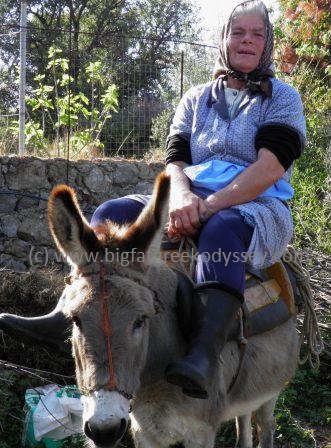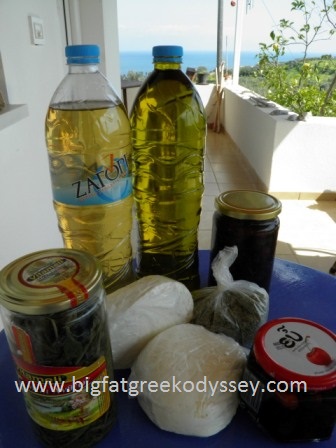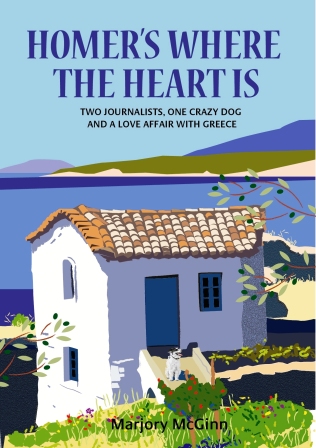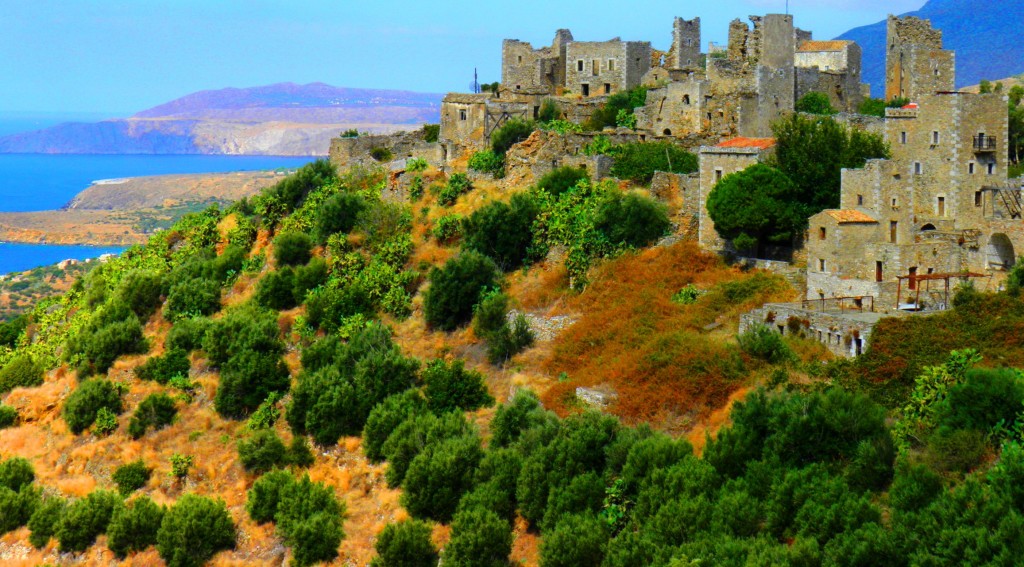I am thrilled to announce that my latest book, a novel called A Saint For The Summer, will shortly be published (March 19), and is currently on pre-order at Amazon.
This contemporary story, set in the Mani region of southern Greece, combines family drama, romance and a World War II mystery, with a cast of intriguing and memorable characters.
Here’s the blurb of the book to whet your appetite:
JOURNALIST Bronte McKnight is summoned to a hillside village in the wild and beautiful Mani region of Greece by her estranged, expat father Angus to help him with a medical problem. But she soon discovers that Angus, whom she has barely seen in 10 years, has lured her there with a trickier challenge in mind – solving a mystery from the Second World War when a family member disappeared in Greece during the disastrous Battle of Kalamata, ‘Greece’s Dunkirk’.
With the country gripped by economic crisis in 2012, and the clock ticking against them, their near-impossible quest takes Angus and Bronte from Kalamata to a remote mountain village where its few remaining inhabitants are bound by old traditions and secrecy. As the pair try to reconcile their own fractured relationship, they are helped in their search for Kieran by a cast of intriguing Greek characters, especially charismatic doctor, Leonidas Papachristou. He has a pivotal role, not least in challenging Bronte’s assumption that she hasn’t the time nor the courage to fall in love in Greece.
The secrets unearthed by Angus and Bronte will be painful and astonishing. This is a compelling tale of heroism, faith, and love – with a heart-warming conclusion.
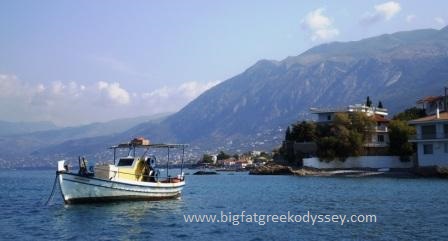
Part of the coastline of the Mani where the story is set under the northern edge of the Taygetos mountains
The idea for this book began to take shape in my mind during my four years in southern Greece from 2010 with my partner Jim and our mischievous terrier Wallace. While the narrative is based on real events, the characters are fictitious, but there is a gentle nod to some of the more memorable people we met while in Greece, with their eccentric and charming personalities, and lifestyle.
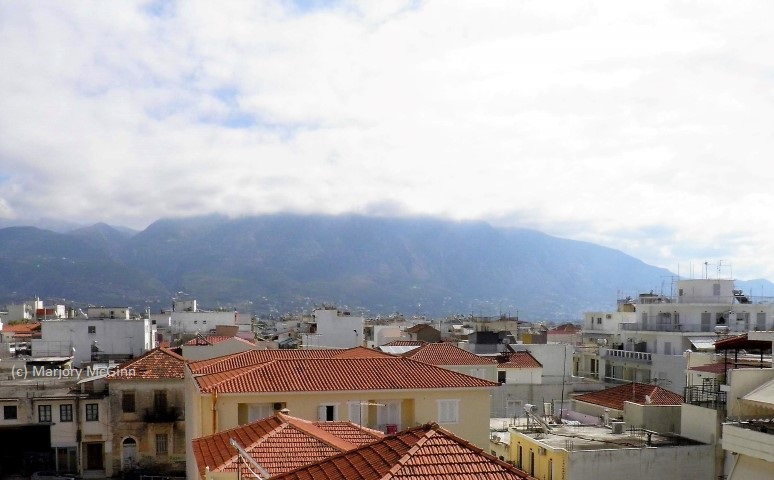
Kalamata city not far from the seafront and with a view of the northern Taygetos mountains whose villages feature in the new novel
A pivotal part of the narrative, however, revolves around what happened to Angus’s relative serving in the Royal Army Service Corp in Greece in 1941 and ending up at the Battle of Kalamata. I had heard something about this infamous battle while in Greece and the brave rear-guard action of the allies, particularly on the part of the ANZAC soldiers, against the Germans. I was always surprised that so little had been written about it.
In 1941, when the Germans invaded Greece, the British and other allied soldiers were forced to retreat south from northern and central Greece, with a huge evacuation underway, called Operation Demon. Around 50,000 troops were evacuated from the Peloponnese, mainly under difficult circumstances, but many ended up in the southern port of Kalamata, the capital of this region, which was effectively the end of the road.
Here the allies, despite heavy Luftwaffe attack, fought on against the Germans who arrived in force in Kalamata on April 28. After the British surrendered on the 29th, the evacuation came to an end and the remaining Royal Navy ships returned to Crete. Around 8,000 soldiers were left behind on Kalamata beach and were told by their British commanding officer that they were now on their own and free to make their own escape.
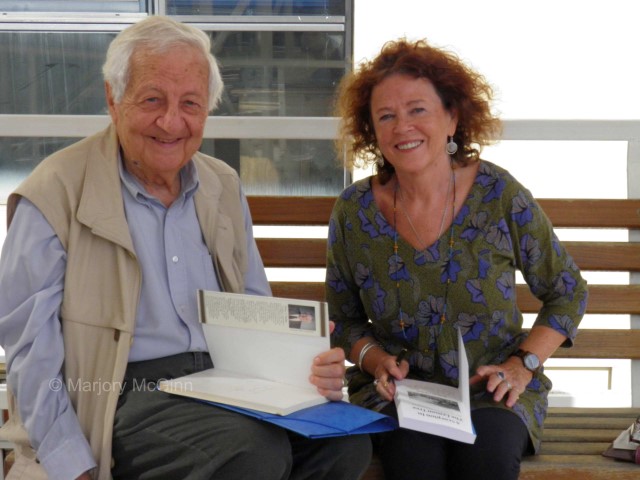
Marjory with historian and writer Nikos Zervis at the Popular Library of Kalamata while they exchanged copies of their books
I became interested in the Battle of Kalamata through many of the people I met, both Greek and British expats. It still exercises a huge hold over the imagination of most Greeks in this region – who also fought bravely against the Germans – though it has not been documented to any serious degree, apart from a book of allies’ stories in Tell Them We Were Here by the late Edwin Horlington, and in Greek by the distinguished Kalamatan historian Nikos Zervis, whom I had the honour to meet there several times, when he talked at length about the battle.
Nikos is a delightful man and a great character, who has written a series of history books over several decades (in Greek) about Kalamatan history as well as an enchanting book about English author Lawrence Durrell who, though it’s not widely known, spent six months in the city. He went there in 1940 to establish a school of English studies, before the Germans invaded. Nikos and I talked at the Popular Library of Kalamata in the Pnevmatiko Kentro and also exchanged books. It was one of the highlights of a recent trip back to Greece.
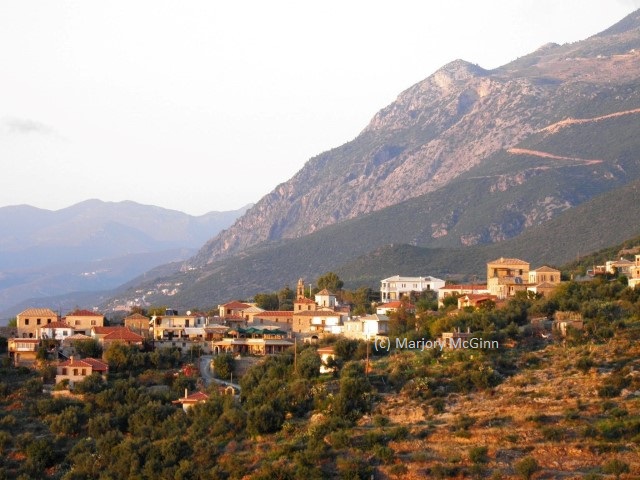
The village of Megali Mantineia in the Mani which inspired to some extend one of the villages in A Saint For The Summer
A Saint For The Summer is not a war book as such, but it is still a gripping tale, and a certain Greek saint may just hold one of the keys to solving the book’s central mystery – hence the title. You’ll have to read the book to discover why that’s the case. And readers of my other books will once again be transported I hope to a sunny, familiar landscape in this wild and beautiful region of Greece, with its inimitable characters. It is also a compelling love story between the protagonist, Bronte McKnight, and the charming, enigmatic doctor, Leonidas Papachristou, with a heart-warming conclusion.
If you enjoy this book please let me know and remember that a review on Amazon is always welcome and helps to raise the profile of an author’s book. Here’s a short video about the book.
The book is on pre-order for two weeks until March 19 from Amazon UK http://amzn.eu/aj5bkc8 and US http://a.co/36iumko as an ebook with a special introductory price of £1.99/$2.99 and on other Amazon sites, and the paperback will follow. So hurry and order a copy before the price goes up after publication. The cover artwork has been produced again by the very talented London artist Anthony Hannaford www.anthonyhannaford.co.uk
You might also like to read my other books:
- For more information about Marjory’s three travel memoirs about living in Greece during the crisis, go to the books page on the website www.bigfatgreekodyssey.com/greek-books www.bigfatgreekodyssey.com or the book page on Facebook http://www.facebook.com/ThingsCanOnlyGetFeta
Comments on the blog are very welcome. Thanks for calling by.
© All rights reserved. All text and photographs copyright of the authors 2010-2018. No content/text or photographs may be copied from the blog without the prior written permission of the authors. This applies to all posts on the blog.
